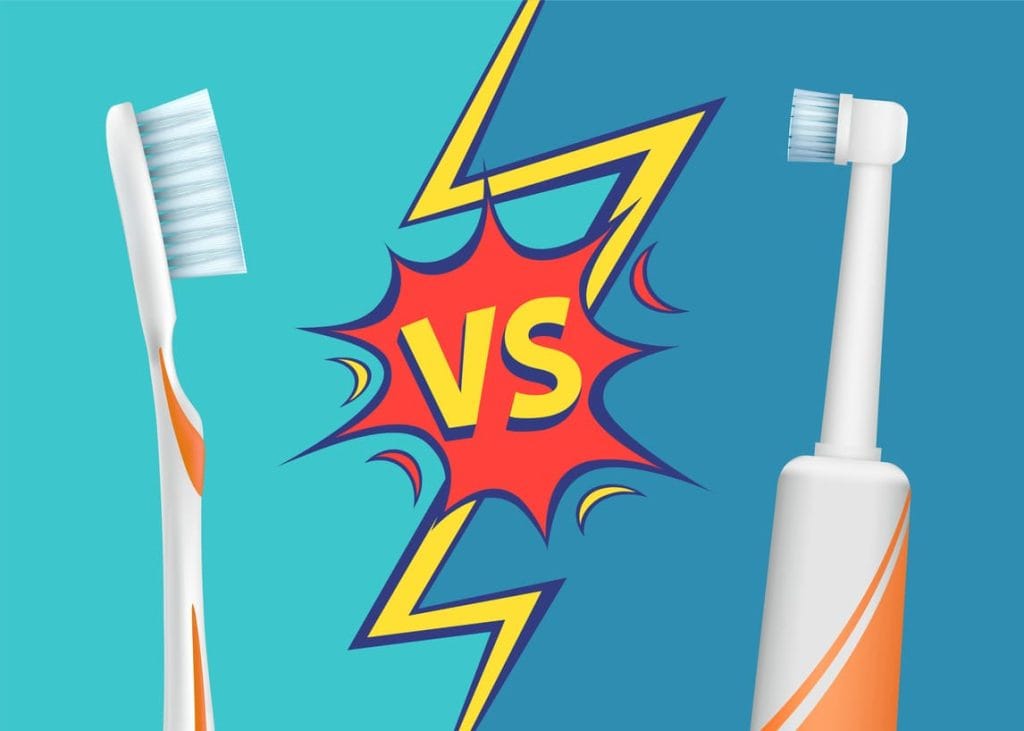
Choosing an electric and a manual toothbrush can be confusing when maintaining oral health. Both have advantages, and understanding these can help you make the decision for your dental care routine. This article examines the benefits and drawbacks of each model to help you choose the most suitable toothbrush for your needs..
The Benefits of Electric Toothbrushes
Electric toothbrushes frequently include built-in timers to ensure you brush for the two minutes the dentist recommends. Additionally, many models have pressure sensors that limit excessive brushing, which could lower the chance of gum damage.
Electric toothbrushes often come with built-in timers to ensure you brush for the dentist-recommended two minutes. Many models also include pressure sensors that prevent over-brushing, which may reduce the risk of gum damage.
An electric toothbrush may be easier to handle for individuals with mobility challenges, such as arthritis. The automated motion does most of the work, making it a practical choice for many.
While electric toothbrushes have many benefits but a higher upfront cost, replacement brush heads can add to the expense, so it’s essential to weigh the cost against the convenience and effectiveness.
The Case for Manual Toothbrushes
Manual toothbrushes have been a staple of oral hygiene for decades. They are widely accessible, reasonably priced, and simple to use. A manual toothbrush allows you to control the pressure and technique, making it an excellent option for those who prefer a hands-on approach to oral care.
These toothbrushes come in various sizes and bristle types, allowing you to choose one that fits your needs. Soft-bristled brushes are gentle on gums, while smaller brush heads may be better suited for navigating tight spaces in your mouth.
One of the main benefits of manual toothbrushes is their mobility. You can use them anywhere without needing batteries or chargers, making them ideal for travel or when on the go.
However, manual toothbrushes require proper technique to be effective. It is essential to brush for at least two minutes and ensure that all surfaces of your teeth are cleaned thoroughly.
Comparing Effectiveness
Studies have shown that electric toothbrushes are generally more effective than manual toothbrushes in removing plaque.
However, the effectiveness of your toothbrush ultimately depends on how you use it. A manual toothbrush can be as effective if you follow good brushing techniques and maintain a consistent oral hygiene routine.
Factors to Consider
The choice between electric and manual toothbrushes depends on several factors:
- Budget: Electric toothbrushes are an enormous upfront investment, while manual toothbrushes are budget-friendly.
- Convenience: Electric toothbrushes often have features like timers and pressure sensors, making them easier to use.
- Portability: Manual toothbrushes are lightweight and require no batteries or charging.
- Personal Preferences: Some individuals prefer the control of a manual toothbrush, while others appreciate the convenience of an electric model.
Take the First Step Toward Better Oral Health!
Discover the proper dental care for you and your family at London Family Dental by Dr. Joseph. Whether you are considering upgrading your routine or have questions about maintaining oral health, our team is here to assist you. Visit our clinic in London, Ontario, or schedule your appointment today to explore personalized dental solutions for your needs.
